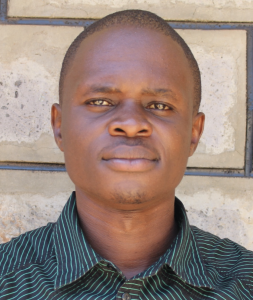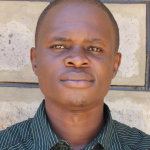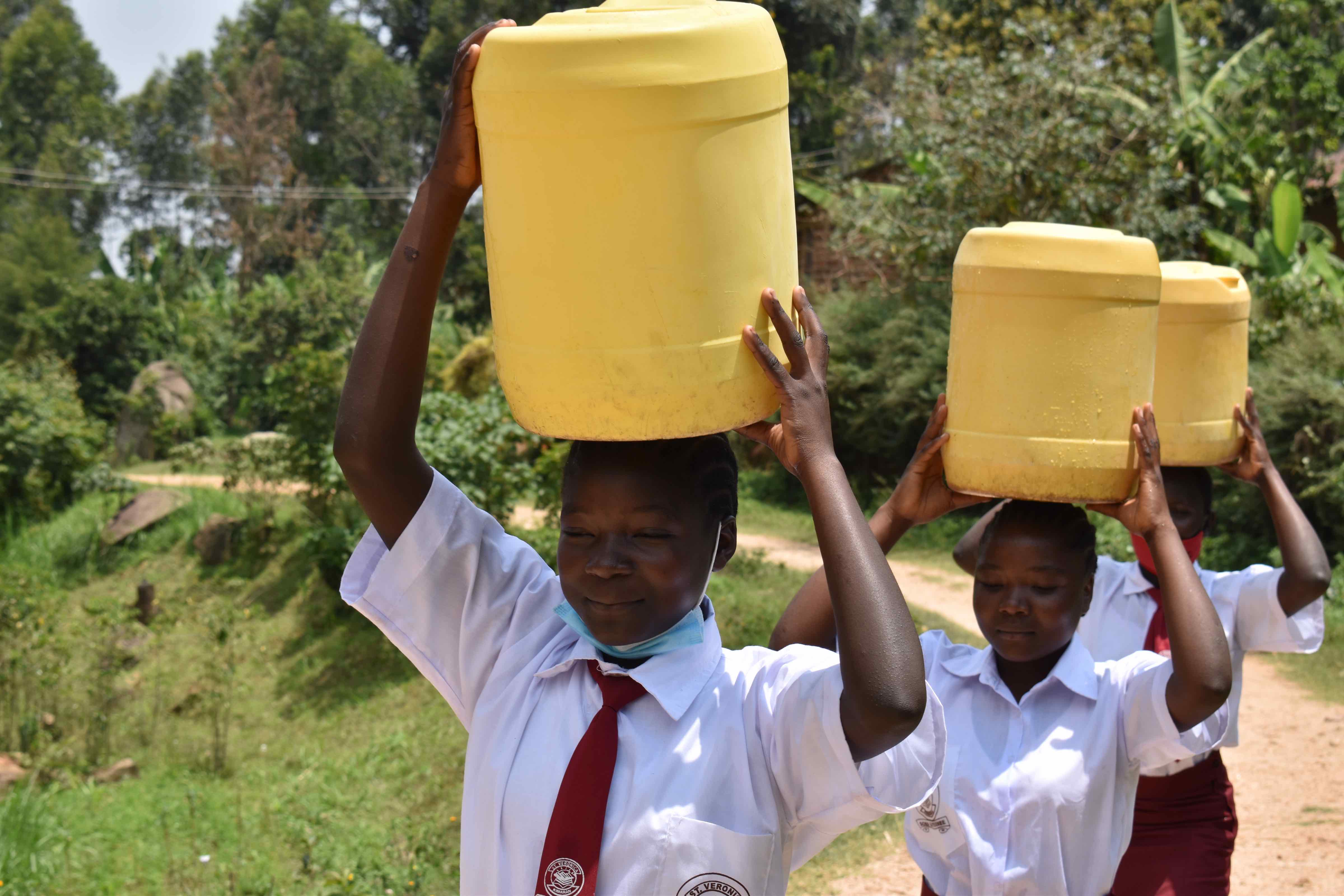June, 2023: St. Veronica Kimaran Secondary School Well Complete!
We are excited to share that St. Veronica Kimaran Secondary School in Kenya now has access to a new safe water source thanks to the completion of their borehole well! Students and staff are already using the well’s flowing water, which will provide them with a reliable water source for all of their daily needs.
We also installed new latrines and handwashing stations and trained students and staff on improved sanitation and hygiene practices. Together, these components will unlock the opportunity for these students to live better, healthier lives.

Happy for clean water!
"Water is life! We all need water in our day-to-day life. An institution that does not have a reliable water source is bound to [have] challenges related to hygiene and sanitation, thus affecting [the] overall performance of the students. Currently, we are grateful to you for having partnered with our school to put up a borehole. Indeed we are blessed. We now have enough clean water to clean our classes, latrines, wash our hands, and also for cooking and drinking. Our hygiene and sanitation standards will greatly be affected positively," said 16-year-old Wilkister A.

Wilkister.
"A school is where students get knowledge through lectures by teachers. Whenever we lose the connection with our teachers due to one or two challenges, students are prone to registering dismal results. From now then, students will enjoy ample time with teachers in class, leading to [the] completion of [the] syllabus on time. This [will] positively impact student's overall performance," said Wilkister.
Teachers were just as excited as the students about the new well on campus.
"Clean, safe, reliable water is key in [the] sustainability of an institution or community. Water being scarce in an institution generates so many challenges, thereby affecting [the] smooth running of daily activities. Currently, we now have a reliable water source in the school compound that will serve us throughout the school calendar, thus allowing for a smooth running of activities. I am guaranteed clean, safe water for drinking whenever I am thirsty," said teacher Kennedy Amukhoye.

Mr. Amukhoye washes his hands at the new well.
Mr. Amukhoye continued, "Currently, the school enrollment is low. One factor driving this is the water challenges in the school. Most parents would rather admit their students to far [away] schools that have existing water sources on the school grounds. Installation of this borehole will open doors for more enrollment in the years to come. Our student's performance has also not been good. We, for many years now, do register dismal performance in the Kenya Certificate of Secondary Education. Going forward, we will enjoy ample time for class work, and this will be a motivation to our students to improve their performance."
How We Got the Water Flowing
Parents, staff, and students all contributed to this well’s success. After determining the best site for the well through a hydrogeological survey, we obtained approval and a license from the government to begin drilling.
To prepare, the school collected fine sand and water for cement-making. When everything was ready, our drill team and staff arrived at the school to begin work.

Drilling begins.
Drilling commenced with excitement in the air. The team drove down a temporary casing to keep the walls from collapsing as the rig progressed. We continued drilling to reach a final depth of 20 meters with a final static water level of 10 meters.
The drilling process can take up to three consecutive days to complete due to this region’s hard bedrock, so the drill team set up a camp where they could rest and refuel. The school’s kitchen staff and parents helped provide meals for the team, while the school provided a safe place for the artisans’ accommodations and materials.
Once we reached the required depth, the team replaced the temporary casing with a permanent version, then bailed out the dirty water at the bottom of the well. The workers installed pipes, flushed them, tested the well’s yield, and chlorinated the water.

Drilling continues.
After water treatment, we constructed a cement well pad to seal off the well from any ground-level contaminants. Tiles are installed beneath the spout to protect the cement from the erosive force of the water.
We also included a short drainage channel to carry spilled water away from the pump and prevent standing water. A soak pit absorbs runoff at the end of the drainage channel, further eliminating any stagnant water.

Building the well pad.
When the well pad was dry, we installed a new stainless steel AfriDev handpump and sampled the water for a quality test. The results showed this water was safe for drinking!
We officially handed over the new borehole to the school’s students and teachers.

Finishing the pump installation.
"Students and teachers were eagerly awaiting to see [the] water flow from the borehole as our team of experts undertook the process of pump installation. After a successful process, there arose jubilations, singing, and dancing from the school fraternity. The school headteacher gave a vote of thanks to everyone who worked tirelessly to see that the project was such a success. The school deputy headteacher closed with a thanksgiving prayer," said our field officer Samuel Samidi.

Water for everyone!
Students and staff celebrated the presence of clean water on campus. The event was an excellent chance to acknowledge the school administration and students as the primary parties entrusted with the tools we have given and remind them of our continued support as they develop. Happiness, thanksgiving, and appreciation were the order of the day, flowing in all directions.
VIP Latrines

This project funded the installation of six new ventilated improved pit (VIP) latrines. These new latrines have cement floors designed to be easy to use and clean, locking doors for safety and privacy, and vents to keep air flowing up and out through the roof. With a well right on school property, there should be enough water to keep them clean.
Handwashing Stations

Learning proper hand washing techniques.
We set up two handwashing stations outside the latrines and handed them over to the newly formed student health club. Health club members will teach other students how to wash their hands at the stations properly, fill the stations with water, and ensure that there is always a cleaning agent available.
New Knowledge
We scheduled hygiene and sanitation training with the school’s staff, who ensured that the training date would be convenient for pupils and teachers. When the training day arrived, facilitators Patience and Samuel deployed to the site to lead the event. 22 students and teachers attended the training, which we held outside on the school compound.

The soap making process demonstration.
We focused on personal, menstrual, oral, and environmental hygiene; proper water handling; soap-making and the ten steps of handwashing; the importance of primary health care, the prevention of teen pregnancy and COVID-19; child rights; the operation and maintenance of the pump, well, latrines, and handwashing stations; and leadership and governance. During the latter, the students elected their peers to lead their newly formed student health club.
The student health club members will encourage good health and hygiene practices amongst their peers, teachers, and the larger community. By the end of the training, each pupil understood their role in sustaining clean water and good health within their school community.
Training about water pollution was interesting to participants. The facilitator explained that water contamination is often a result of human activities like human and animal defecation and farming close to water points. Most participants admitted that they never treated their drinking water but promised to treat their drinking water through boiling, chlorination, filtration, and solar disinfection in the future.

Solar water disinfection.
"Primary healthcare, environmental sanitation, and clean water use are key [to the] success and growth of an institution. Today, our facilitators have expounded much on the same, giving detailed information that will fast-track our improvements to cope with the required standards," said Vallary I.
Conclusion
This project required a substantial collaboration between our staff, our in-country teams, and the community members. When an issue arises concerning the well, the students and teachers are equipped with the necessary skills to rectify the problem and ensure the water point works appropriately. However, if the issue is beyond their capabilities, they can contact their local field officers to assist them.
Also, we will continue to offer them unmatchable support as a part of our monitoring and maintenance program. We walk with each community, problem-solving together when they face challenges with functionality, seasonality, or water quality. Together, all these components help us strive for enduring access to reliable, clean, and safe water for this community.
With your contribution, one more piece has been added to a large puzzle of water projects. In Kenya, Uganda, and Sierra Leone, we’re working toward complete coverage. That means reliable, maintained water sources within a 30-minute round trip for each community, household, school, and health center. With this in mind, search through our upcoming projects to see which community you can help next!
Thank you for making all of this possible!
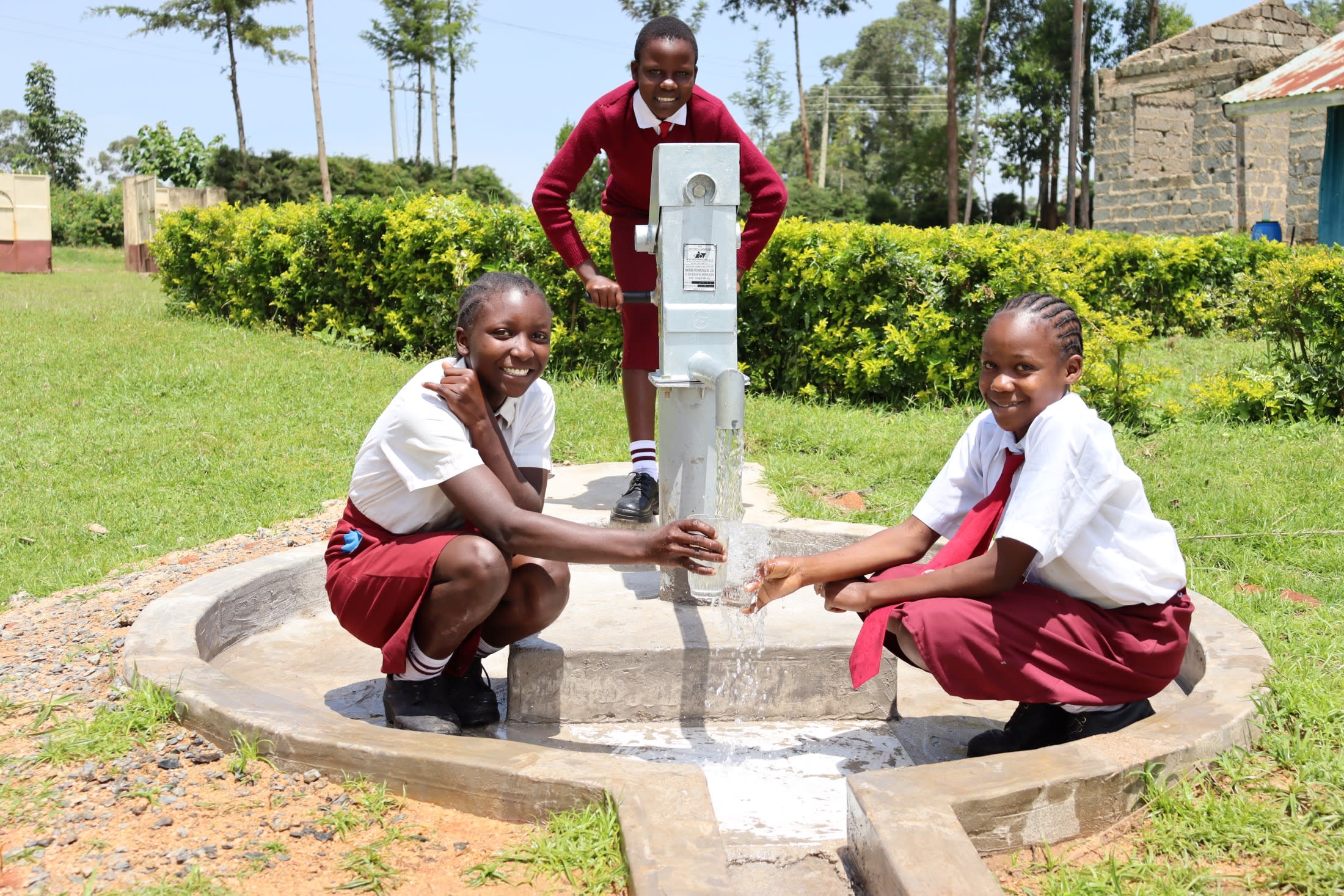

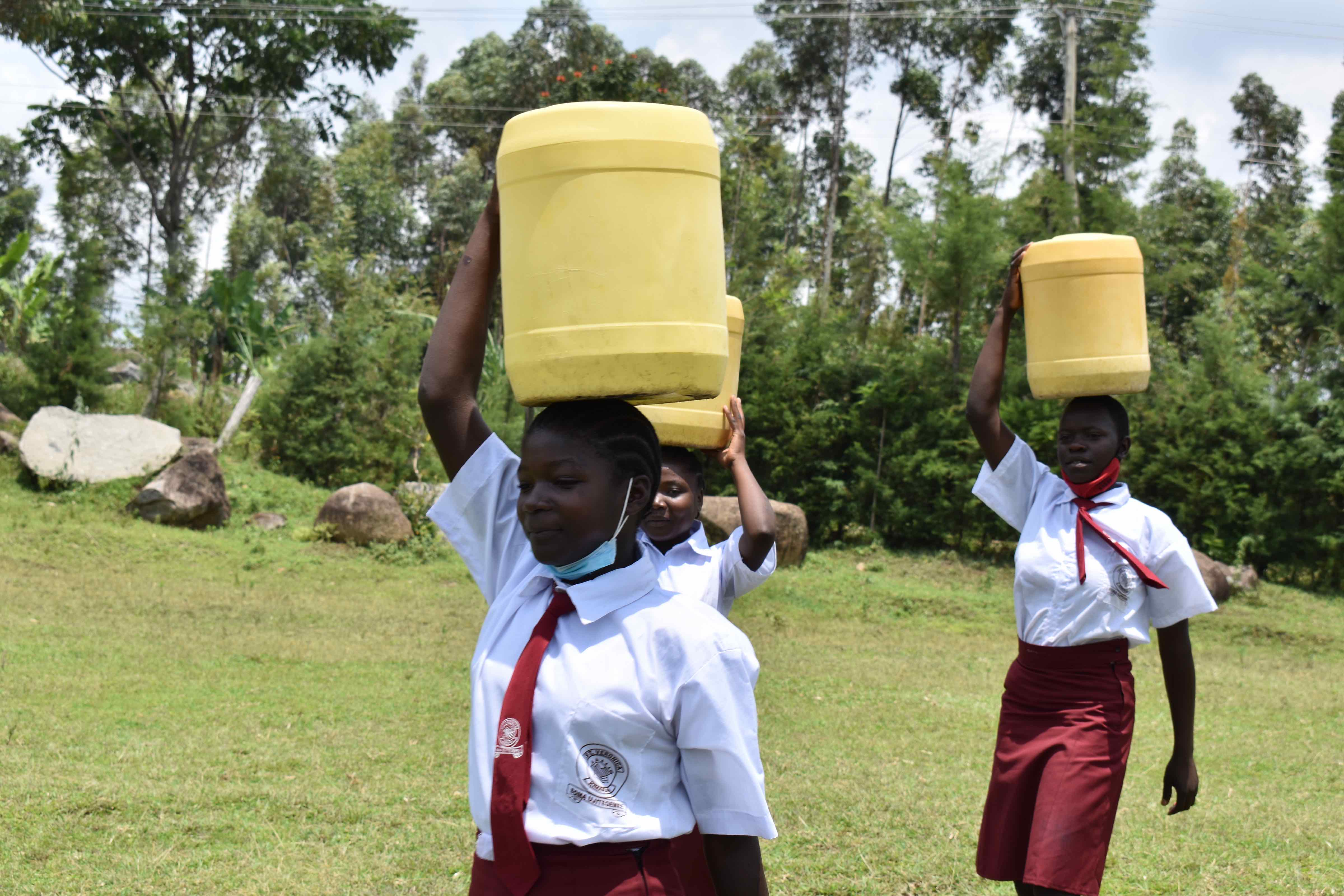
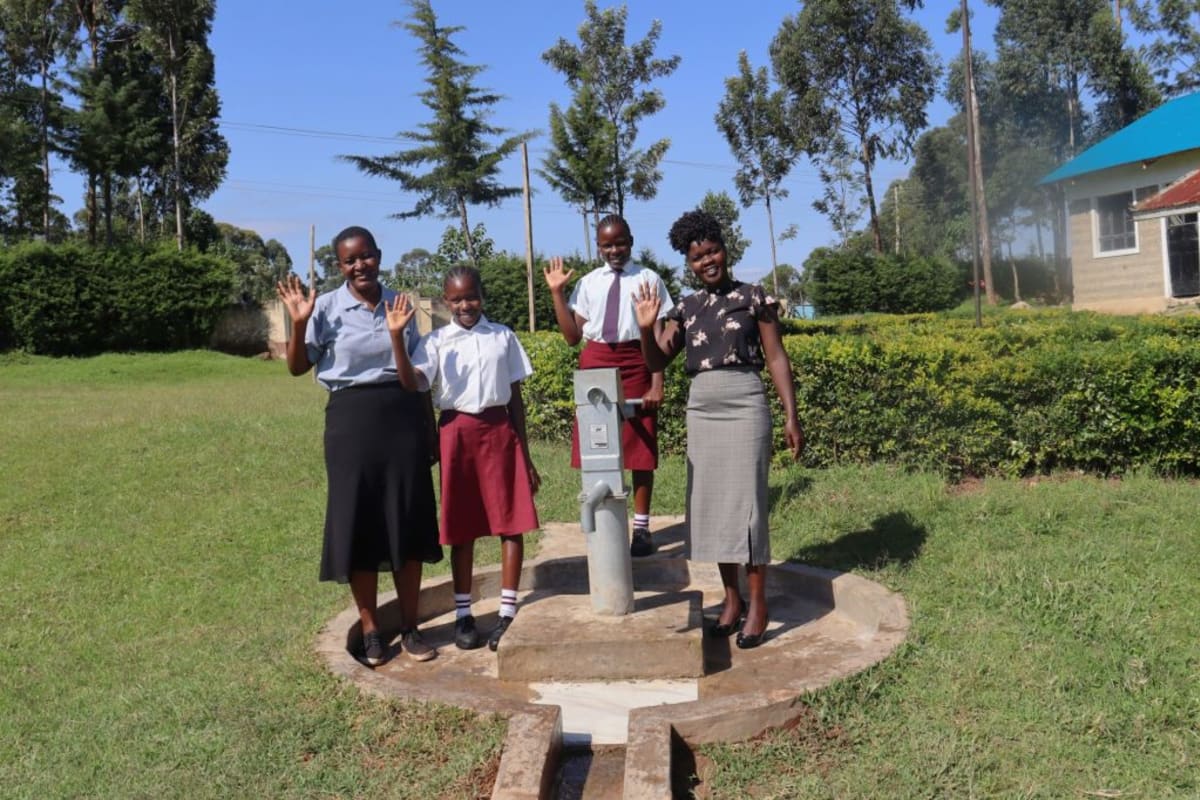
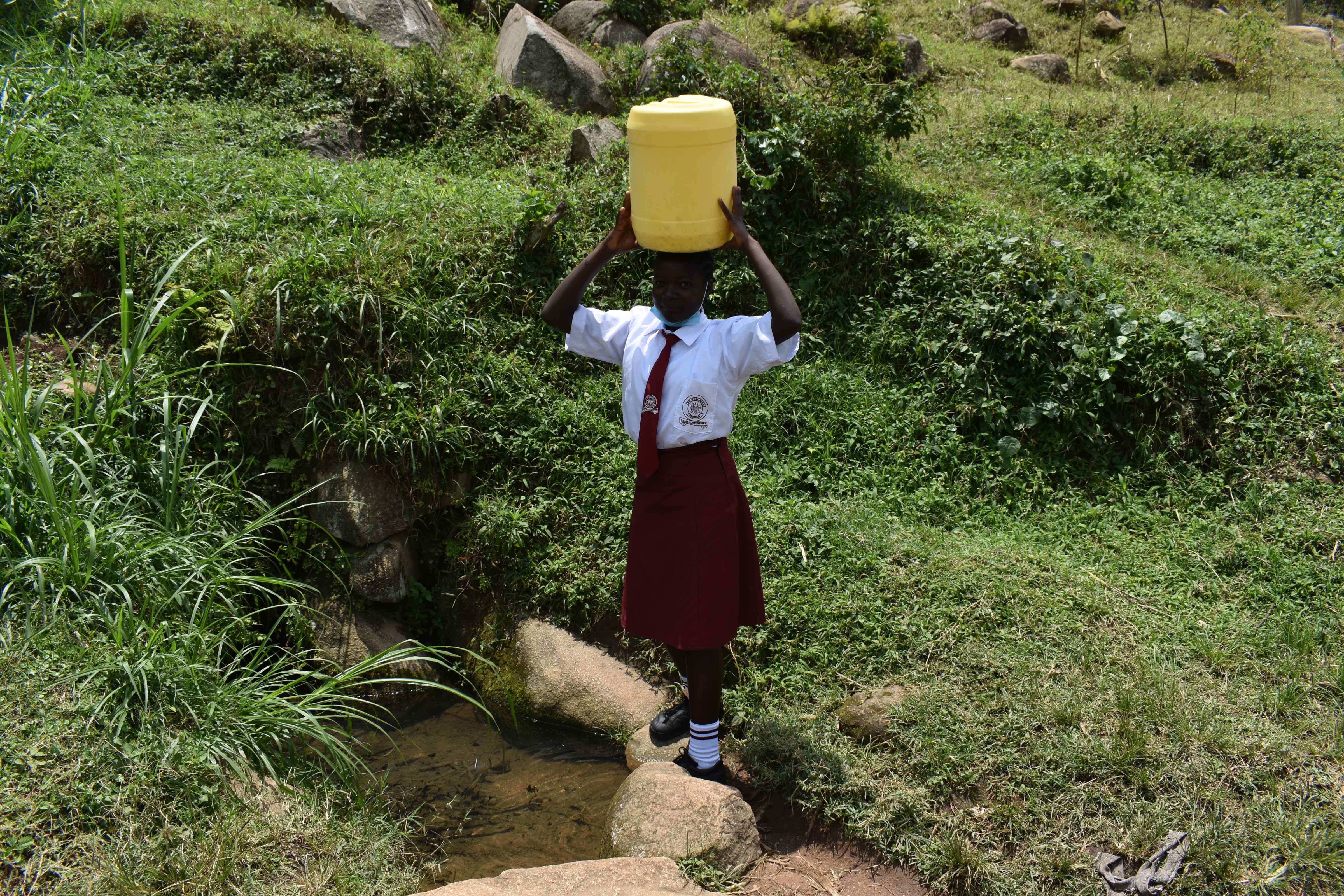
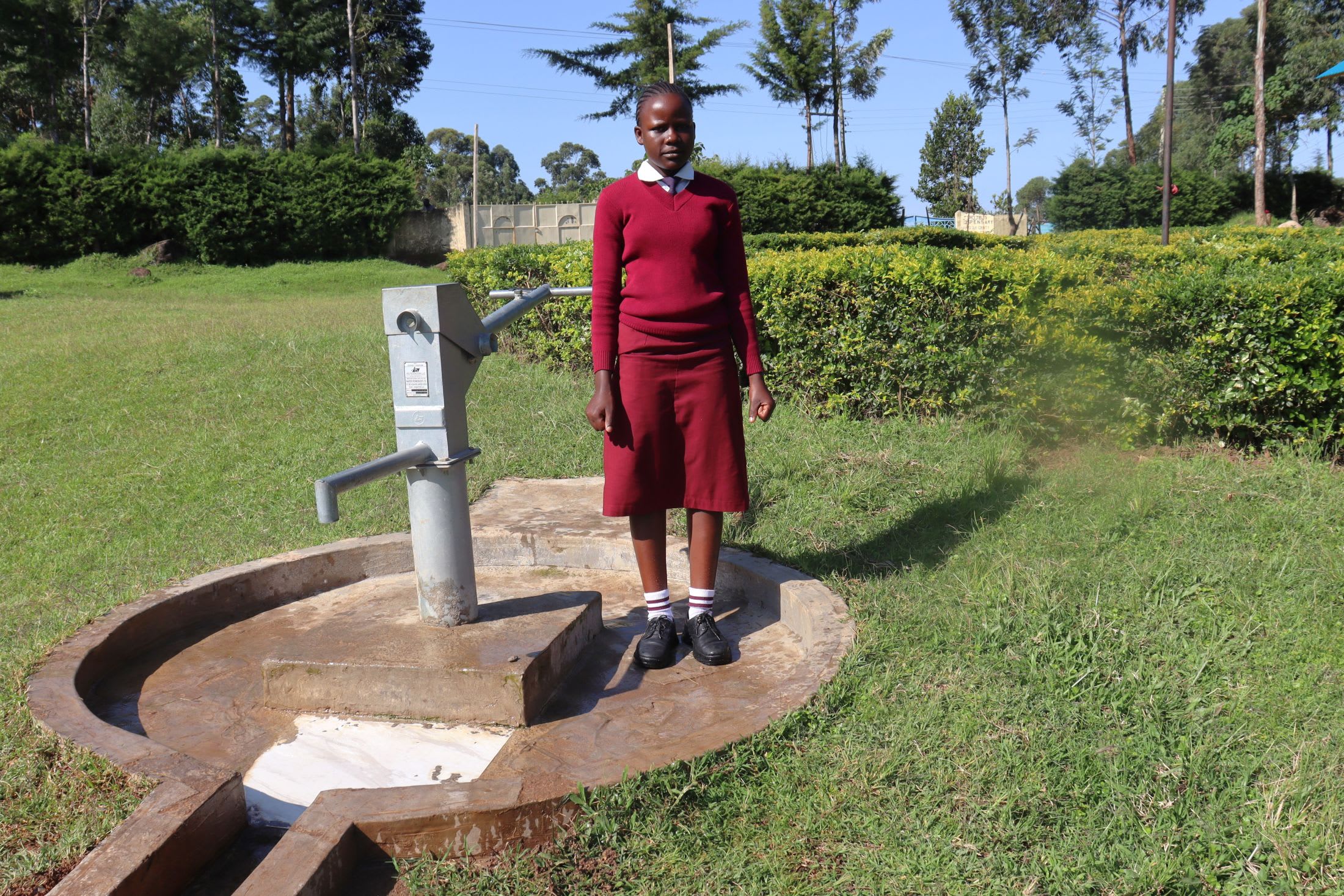

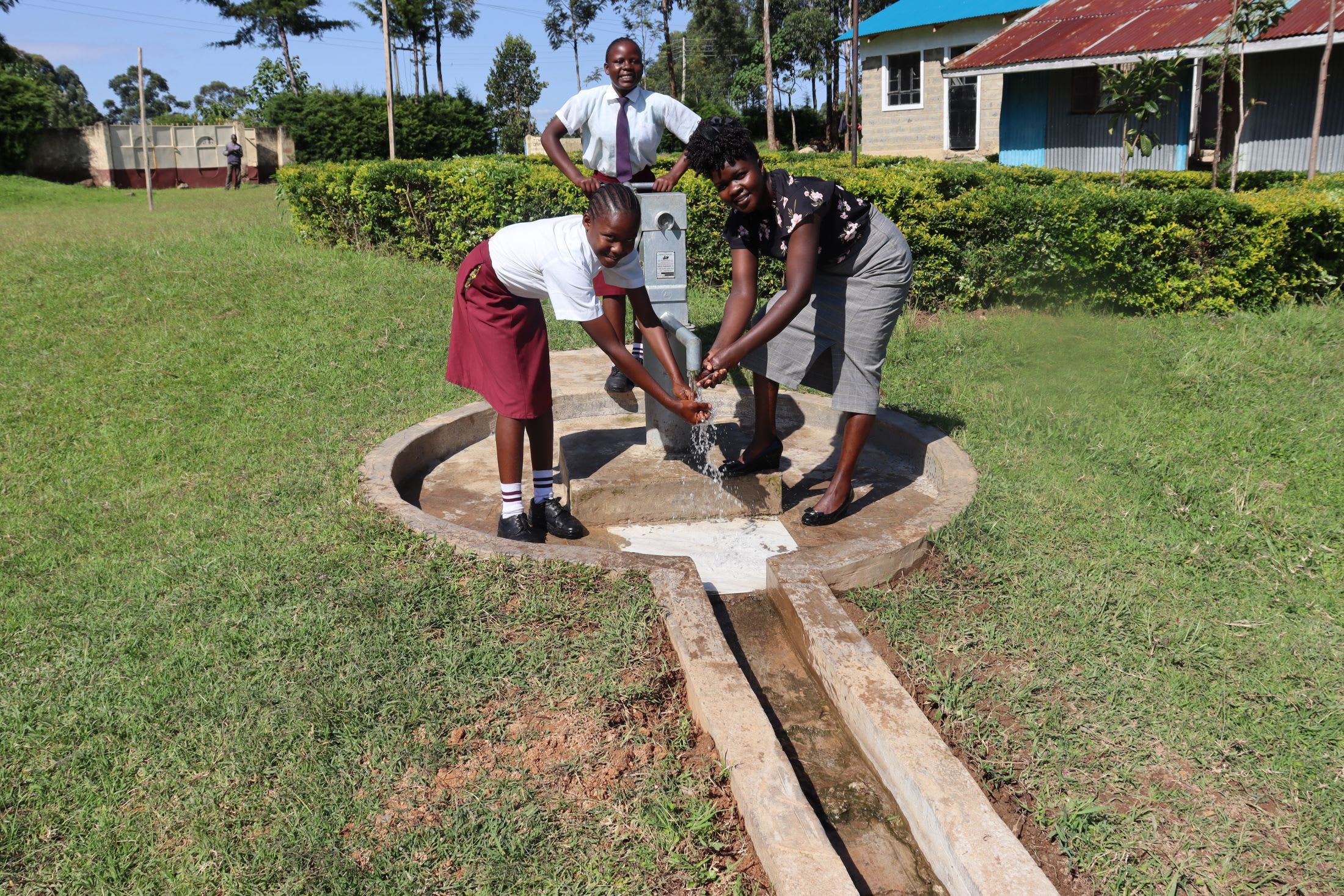

 Borehole Well and Hand Pump
Borehole Well and Hand Pump
 Rehabilitation Project
Rehabilitation Project












